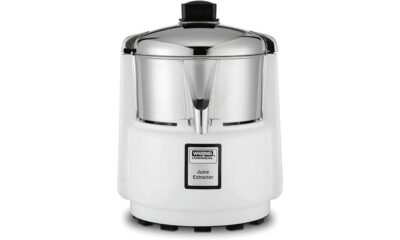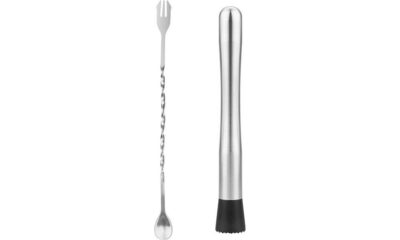Turmeric Tea
Can Turmeric Tea Induce Menstruation?

As a woman, I know that menstruation can be a complex and sensitive topic. It’s a natural bodily process that can affect our physical and emotional well-being. However, sometimes our menstrual cycle can become irregular or missed, leading to concerns and questions about our health.
And with the abundance of natural remedies available, it’s understandable to wonder if certain teas like turmeric can induce menstruation. Turmeric, a yellow spice commonly found in Indian cuisine, has been used in Ayurvedic medicine for centuries for its medicinal properties. Known for its anti-inflammatory and antioxidant effects, turmeric has become a popular ingredient in many health products, including teas.
But can it really induce menstruation? In this article, we will explore the traditional use of turmeric, its potential health benefits, and the lack of scientific evidence supporting its use for menstruation. We will also discuss the potential risks and side effects of consuming turmeric tea and explore other natural remedies and medical treatments for irregular or missed periods.
Key Takeaways
- Turmeric has been traditionally used in Ayurvedic medicine to treat menstrual disorders.
- Claims suggest that turmeric tea can induce menstruation, but there is a lack of scientific evidence to support these claims.
- Limited studies have been conducted on the effects of turmeric tea on menstrual cycles, and the results are inconclusive.
- One study found that turmeric supplementation was effective in reducing symptoms associated with premenstrual syndrome (PMS), and another study found that turmeric extract was effective in reducing pain and duration of menstrual bleeding in women.
Understanding Menstruation and Its Regulation by Hormones
Did you know that menstruation is regulated by hormones? The menstrual cycle is a complex process that is controlled by a delicate balance of hormones, including estrogen and progesterone. Understanding ovulation patterns is key to understanding how these hormones regulate menstruation.
Ovulation is when an egg is released from the ovary, and it typically occurs about 14 days before the start of a woman’s next period.
There are many factors that can affect a woman’s menstrual cycle, including hormonal contraceptives. Birth control pills, for example, work by regulating hormones in the body to prevent ovulation. This can lead to changes in the timing and duration of periods.
Understanding how hormones work to regulate menstruation is important when considering the potential effects of turmeric tea on inducing menstruation.
Turmeric has been traditionally used in Ayurvedic medicine to treat a variety of conditions, including menstrual disorders. However, it is important to understand the scientific evidence behind these claims before using turmeric tea as a natural remedy for inducing menstruation.
Traditional Use of Turmeric in Ayurvedic Medicine
In the ancient practice of Ayurvedic medicine, this golden spice has been used for centuries to address a variety of health concerns. Turmeric, also known as Curcuma longa, is a plant that belongs to the ginger family and is native to southern India.
Ayurvedic practices have traditionally used turmeric for its anti-inflammatory and antioxidant properties, as well as its ability to aid digestion and improve liver function. Turmeric supplements are also used to support the immune system and promote overall health.
Turmeric’s popularity has grown in recent years due to its potential health benefits. Studies have shown that turmeric may have anti-inflammatory effects, which may be beneficial in reducing pain and inflammation in conditions such as arthritis. Turmeric’s antioxidant properties may also help protect against cellular damage and reduce the risk of chronic diseases such as cancer.
Overall, the traditional use of turmeric in Ayurvedic medicine has provided a strong foundation for further research into its potential health benefits.
Health Benefits of Turmeric
I’d like to discuss the health benefits of turmeric, specifically its anti-inflammatory and antioxidant properties.
As someone who values evidence-based health practices, I’ve been intrigued by the growing body of research on the potential benefits of turmeric. Studies have shown that the active compound in turmeric, curcumin, has potent anti-inflammatory and antioxidant effects. These effects may help protect against chronic diseases such as cancer, heart disease, and Alzheimer’s.
Anti-inflammatory Properties
You’ll feel the warmth of turmeric tea as it works to soothe inflammation in your body. As I mentioned in the previous subtopic about the health benefits of turmeric, this spice has been used in cooking for centuries and is also a popular ingredient in alternative medicine. Its anti-inflammatory properties have been extensively studied and have been shown to be effective in reducing inflammation in various parts of the body, including the joints, brain, and heart.
To understand how turmeric helps reduce inflammation, let’s take a look at the table below:
| Inflammation | Turmeric |
|---|---|
| Causes | Infections, injuries, allergies, and chronic diseases |
| Effects | Pain, swelling, redness, and loss of function |
| How Turmeric Helps | Curcumin, the active compound in turmeric, blocks inflammatory pathways and reduces the production of inflammatory molecules |
As you can see, turmeric targets the root cause of inflammation by inhibiting the molecules that trigger it. This makes it a potent natural remedy for conditions that involve inflammation, such as arthritis, Alzheimer’s, and heart disease. In the next subtopic, I will discuss another amazing property of turmeric – its antioxidant power.
Antioxidant Properties
Get ready to be amazed by the incredible antioxidant power of this golden spice! Turmeric is packed with polyphenols, which are natural compounds that’ve been shown to have antioxidant properties.
These polyphenols can help protect cells from damage caused by harmful molecules called free radicals, which’re produced in our bodies as a result of normal metabolism or exposure to environmental toxins.
Here are three ways in which incorporating turmeric in your daily diet can benefit your skin health:
-
Turmeric can help reduce inflammation, which’s a major contributor to skin problems like acne, eczema, and psoriasis.
-
Turmeric can also help protect your skin from sun damage, thanks to its ability to neutralize free radicals and reduce oxidative stress.
-
Finally, turmeric’s known to promote healthy blood circulation, which can help deliver vital nutrients and oxygen to your skin cells, leading to a more youthful and radiant complexion.
As you can see, there are many reasons to love turmeric and its antioxidant properties. But what about the claim that turmeric tea can induce menstruation? Let’s explore this controversial topic further.
Claims that Turmeric Tea Can Induce Menstruation
If you’re looking for a natural way to induce menstruation, turmeric tea is often claimed to be effective. According to Ayurvedic beliefs and some folk remedies, turmeric has the ability to stimulate the uterus and promote menstrual flow. However, there is a lack of scientific evidence to support these claims.
To better understand the possible effects of turmeric tea on menstruation, it may be helpful to examine its components and how they relate to the menstrual cycle. The following table outlines some of the key components of turmeric and their potential effects on menstruation:
| Component | Potential Effects on Menstruation |
|---|---|
| Curcumin | Anti-inflammatory, may support healthy uterine function |
| Iron | May support healthy blood production |
| Calcium | May support healthy muscle contractions, including uterine contractions |
| Magnesium | May support healthy hormone production and balance |
| Vitamin K | May support healthy blood clotting |
While these components may have potential benefits, it is important to note that there is currently no scientific evidence to support the claim that turmeric tea can induce menstruation. In the next section, we will explore the lack of scientific evidence surrounding this claim.
Lack of Scientific Evidence
As I researched the topic of turmeric tea and its potential to induce menstruation, I found that there’s a lack of scientific evidence to support this claim.
Limited studies have been conducted on the effects of turmeric tea on menstrual cycles, and the results are inconclusive.
It’s clear that more research needs to be done before any definitive conclusions can be drawn.
Limited Studies on Turmeric Tea and Menstruation
You may be interested to know that there are limited studies on how turmeric tea may affect menstruation. While there’s a great deal of folklore surrounding the use of turmeric tea to induce menstruation, there’s little scientific evidence to support these claims. However, there’ve been some studies exploring the potential benefits of turmeric tea for menstrual disorders.
One study published in the Journal of Herbal Medicine found that turmeric supplementation was effective in reducing symptoms associated with premenstrual syndrome (PMS), such as abdominal pain, bloating, and mood swings.
Another study published in the Journal of Medicinal Food found that turmeric extract was effective in reducing pain and duration of menstrual bleeding in women with primary dysmenorrhea.
Despite these promising findings, more research is needed to fully understand the effects of turmeric tea on menstruation, and to determine whether it’s safe and effective for this purpose.
Need for More Research
While there have been limited studies on the effects of turmeric tea on menstruation, the results have been mixed and inconclusive. Some studies suggest that turmeric may have a positive effect on menstrual pain and irregularities, while others show no significant impact. However, it is important to note that these studies are small and may not be representative of the general population.
Therefore, there is a need for more research to better understand the potential benefits and risks of turmeric tea on menstruation. As more people turn to alternative therapies for menstrual issues, it is important to have a better understanding of how these therapies work and their potential side effects. In the table below, I have summarized some of the key areas that require further investigation in order to determine the efficacy and safety of turmeric tea for menstrual issues.
| Area of Investigation | Why it is Important | Potential Results |
|---|---|---|
| Dose and duration of treatment | Determine optimal dosage and length of treatment | May impact effectiveness and potential side effects |
| Patient characteristics | Identify which patients may benefit most from turmeric tea | May impact effectiveness and potential side effects |
| Mechanism of action | Understand how turmeric tea affects menstrual cycles | May provide insight into potential benefits and risks |
While turmeric tea may hold promise as a natural remedy for menstrual issues, more research is needed to fully understand its potential benefits and risks. In the next section, we will explore some of the potential risks and side effects of turmeric tea.
Potential Risks and Side Effects of Turmeric Tea
Watch out for possible stomach discomfort, nausea, and diarrhea when drinking turmeric tea as too much of it can cause digestive issues. While turmeric is generally considered safe, some people may experience adverse effects when consuming large quantities of it. These side effects can be especially dangerous for pregnant women or those with pre-existing medical conditions.
Furthermore, some research suggests that turmeric may interfere with certain medications, such as blood thinners. Therefore, it’s important to talk to your doctor before consuming turmeric tea, especially if you have any underlying health issues or take any medications.
When it comes to menstruation safety, there is limited research on the effects of turmeric tea. While some people believe that turmeric tea can help induce menstruation, there isn’t enough evidence to support this claim. Instead, natural remedies such as exercise, stress reduction, and a healthy diet may be more effective in regulating periods.
It’s important to consult with a healthcare provider if you experience irregular or missed periods, as these could be a sign of an underlying health condition.
Natural Remedies for Irregular or Missed Periods
While turmeric tea may offer some potential health benefits, it’s important to be aware of the potential risks and side effects associated with its use.
However, for those experiencing irregular or missed periods, there may be natural remedies that can help regulate menstrual cycles.
Herbal remedies, such as ginger and raspberry leaf, have been traditionally used to promote menstruation and regulate the menstrual cycle.
Additionally, incorporating dietary changes such as increasing intake of iron-rich foods and reducing caffeine and alcohol consumption may also help with menstrual irregularities.
It’s important to note that while natural remedies may be helpful, they shouldn’t replace medical advice and consultation with a healthcare provider.
Moving forward, medical treatments for irregular or missed periods may be necessary in some cases.
It’s important to seek medical attention if menstrual irregularities persist or if there are other concerning symptoms present.
Medical Treatments for Irregular or Missed Periods
In this subtopic, I’ll discuss medical treatments for irregular or missed periods. These treatments include hormonal therapy and surgery.
Hormonal therapy involves the use of medications to regulate hormone levels and induce menstruation. Surgery may be recommended in cases of underlying medical conditions or abnormalities that affect the menstrual cycle.
Both options should only be considered after a thorough evaluation and consultation with a healthcare provider.
Hormonal Therapy
You can try hormonal therapy to regulate your menstrual cycle, but it’s important to consult with your doctor first. This type of therapy involves taking medications that contain hormones, such as estrogen and progesterone, which can help to balance out any hormonal imbalances that may be causing irregular periods.
Hormonal therapy is often used as a treatment option for women who are experiencing irregular periods due to conditions such as polycystic ovary syndrome (PCOS) or endometriosis. In addition to regulating menstrual cycles, hormonal therapy can also be used as a part of fertility treatments.
For example, women who are undergoing in vitro fertilization (IVF) may be prescribed hormonal medications to help prepare their bodies for the procedure. However, it’s important to note that hormonal therapy can come with potential risks and side effects.
That’s why it’s crucial to speak with your doctor before starting any type of hormonal treatment. Moving onto the next section about surgery, there are also surgical options available for treating menstrual irregularities.
Surgery
If you’re experiencing severe menstrual irregularities that can’t be treated with other methods, your doctor may recommend surgery as an option. This can include procedures such as hysterectomy, endometrial ablation, or removal of ovarian cysts. While surgery may be effective in regulating menstrual cycles, it’s important to note that it’s a major medical procedure that comes with its own set of risks and potential complications.
Post-surgery recovery can vary depending on the type of procedure performed and individual factors such as age and overall health. Pain management during this time is crucial and may involve the use of medications or other therapies. It’s also important to follow your doctor’s instructions for post-surgery care and attend any necessary follow-up appointments.
While surgery may be a viable option for some, it should be carefully weighed against other non-invasive treatments and discussed thoroughly with your healthcare provider.
Maintaining a healthy lifestyle is crucial for overall reproductive health and can also help manage menstrual irregularities.
Importance of Maintaining a Healthy Lifestyle
Maintaining a healthy lifestyle is crucial for the overall well-being of women, especially for those experiencing irregular or missed periods. As someone who values their health, I believe that managing stress, engaging in regular exercise, and maintaining a healthy weight are key factors in promoting menstrual regularity.
Evidence suggests that high levels of stress can disrupt hormonal balance, causing irregular periods. On the other hand, regular exercise and healthy weight management have been shown to promote menstrual regularity.
Managing Stress
Stress can have a significant impact on our overall health, including our menstrual cycles. When we experience high levels of stress, our body releases cortisol, a hormone that can disrupt the balance of hormones responsible for regulating our menstrual cycles. This can result in irregular periods, missed periods, or even amenorrhea (the absence of periods).
One way to manage stress and support healthy menstrual cycles is through stress management and self-care practices. This can include things like meditation, deep breathing exercises, yoga, or spending time in nature. By taking time for ourselves and prioritizing our mental health, we can reduce the impact of stress on our bodies and support healthy menstrual cycles.
Regular exercise and weight management can also play a role in maintaining healthy menstrual cycles. By engaging in regular physical activity and maintaining a healthy weight, we can support the balance of hormones responsible for regulating our menstrual cycles.
In the next section, we’ll explore the ways in which exercise and weight management can impact our menstrual cycles in more detail.
Exercise and Weight Management
After discussing the importance of managing stress, let’s shift our focus to exercise and weight management. As someone who’s struggled with weight gain and fluctuations, I’ve learned that exercise is not just about losing weight, but also about improving overall health. Regular exercise can lead to a healthier heart, a better mood, and increased energy levels.
One exercise regimen that’s gained popularity is HIIT or High-Intensity Interval Training. This involves short bursts of intense exercise followed by periods of rest or lower intensity. The benefits of HIIT are numerous, including improved cardiovascular health, increased metabolism, and the potential for weight loss. However, it’s important to note that HIIT may not be suitable for everyone, particularly those with certain health conditions. As always, it’s important to consult with a healthcare professional before starting any new exercise regimen.
In addition to exercise, hydration is crucial for weight management and overall health. Drinking enough water can help regulate appetite, boost metabolism, and improve digestion. It’s recommended to drink at least 8 glasses of water a day, but this can vary depending on individual needs. An easy way to track water intake is by carrying a water bottle and refilling it throughout the day. Incorporating fruits and vegetables with high water content, such as watermelon and cucumber, can also help with hydration.
Remember, staying hydrated is key to maintaining a healthy weight and overall well-being.
Frequently Asked Questions
How long does it typically take for turmeric tea to induce menstruation?
Turmeric tea benefits include menstrual cycle regulation. However, there is no set timeframe for turmeric tea to induce menstruation. It is important to consult a healthcare provider before using turmeric as a natural remedy.
Can drinking turmeric tea during pregnancy cause any harm to the mother or fetus?
As the adage goes, ‘better safe than sorry’. When it comes to turmeric tea safety during pregnancy, there are potential risks to both the mother and fetus. It’s best to consult with a healthcare provider before consuming.
Are there any specific dosages or preparations of turmeric tea that are more effective in inducing menstruation?
To induce menstruation with turmeric tea, a specific dosage or preparation is not established. However, some studies have shown that curcumin, a compound found in turmeric, may have an effect on female reproductive health. It’s important to consult with a healthcare professional before using turmeric for this purpose.
Is turmeric tea a suitable alternative to medical treatments for irregular or missed periods?
As someone who values natural remedies for menstrual irregularities, I’ve found that turmeric tea benefits me greatly. While medical treatment may be necessary for some, incorporating turmeric tea into my routine has helped regulate my cycle in a gentle and effective way.
Can turmeric tea be used in conjunction with hormonal birth control methods?
I cannot recommend the use of turmeric tea as a form of birth control or as a way to enhance fertility. There is insufficient evidence to support these claims and it may interact with hormonal birth control methods.
Conclusion
In conclusion, while some people believe that turmeric tea can induce menstruation, there’s currently no scientific evidence to support this claim. Furthermore, consuming large amounts of turmeric or other herbal remedies can have potential risks and side effects.
It’s important to remember that irregular or missed periods can have various causes and that seeking medical advice is recommended. Maintaining a healthy lifestyle, including a balanced diet, regular exercise, and stress management, can also support menstrual regularity.
In the end, it’s always best to consult with a healthcare professional before attempting to use natural remedies or making any significant changes to your health routine.
Arf, an author and an innovative enthusiast of coffee, coffee alternatives, and tea, plays a crucial role as a contributor to the esteemed Cappuccino Oracle platform. Renowned for his curiosity and passion for these captivating beverages, Arf has carved out a unique space for himself in the world of exploration and writing. He realized that coffee, coffee alternatives, and tea are not mere drinks to keep one awake, but universes of flavors and stories waiting to be explored.
Arf’s articles for Cappuccino Oracle blend meticulous research with personal experiences, providing readers with an in-depth understanding of various types of coffee, coffee alternatives, and tea, along with their unique characteristics, cultures, and histories. His honest reviews and engaging narratives guide readers on their own journeys, helping them discover their preferences and find their perfect brew.
Turmeric Tea
What Kombucha Tea Is Good for Gerd

As someone who deals with GERD, I understand the challenge of finding effective natural remedies. I was excited to find out about how **kombucha tea** could help alleviate GERD symptoms. If you want to learn more about this natural remedy, keep reading!
In this article, we’ll explore the science behind how kombucha tea can soothe GERD and offer relief. We’ll also discuss how to choose the right kombucha tea and ways to incorporate it into your GERD diet.
Get ready to brew some delicious and potentially soothing kombucha tea for your GERD!
Key Takeaways
- Kombucha tea can relieve symptoms of GERD, such as heartburn and acid reflux.
- Choosing the right kombucha tea for GERD relief involves considering soothing flavors like ginger, lemon, and chamomile, as well as low sugar and minimal added ingredients.
- Kombucha tea soothes GERD symptoms by balancing stomach acidity, reducing acid reflux, and improving digestion with its beneficial bacteria and enzymes.
- When incorporating kombucha tea into a GERD diet, it is important to monitor its effects on symptoms, consider individual responses, and take into account factors such as acidity levels, sugar content, and personal tolerance.
The Benefits of Kombucha Tea for GERD
Kombucha tea can help relieve symptoms of GERD, such as heartburn and acid reflux. The benefits of consuming kombucha tea for GERD are supported by its health effects on the digestive system.
Kombucha is a fermented beverage that contains probiotics, which are beneficial bacteria that promote gut health. These probiotics can help restore the balance of bacteria in the digestive tract, reducing symptoms of GERD.
Additionally, kombucha tea is a natural source of organic acids, such as acetic acid and gluconic acid, which can help regulate stomach acidity and prevent the excessive production of stomach acid that leads to heartburn and acid reflux.
Overall, incorporating kombucha tea into your diet can have positive effects on GERD symptoms and improve your overall digestive health.
Choosing the Right Kombucha Tea for GERD Relief
When selecting the right option, make sure to consider the flavors and ingredients that may aggravate your GERD symptoms. It’s important to find kombucha flavors that are soothing and gentle on the digestive system. Some flavors that are known to provide relief for GERD sufferers include ginger, lemon, and chamomile. These flavors have anti-inflammatory properties and can help soothe the lining of the esophagus. When looking for kombucha brands, it’s best to choose ones that are low in sugar and have a minimal amount of added ingredients. Some popular brands that cater to GERD sufferers include GT’s Living Foods, Health-Ade, and Brew Dr. Kombucha. These brands offer a variety of flavors that are suitable for individuals with GERD.
| Brand | Flavors for GERD Relief |
|---|---|
| GT’s Living Foods | Ginger, Lemon |
| Health-Ade | Ginger, Lemon |
| Brew Dr. Kombucha | Ginger, Chamomile |
| Synergy | Ginger, Lemon |
| Kevita | Lemon, Chamomile |
How Kombucha Tea Can Soothe GERD Symptoms
If you’re struggling with GERD, it’s worth exploring how kombucha can provide relief for your symptoms.
Kombucha tea is known for its many health benefits, including its potential to soothe GERD symptoms. The fermentation process of kombucha produces organic acids, such as acetic acid and gluconic acid, which can help balance the pH levels in the stomach and reduce acid reflux.
Additionally, kombucha contains beneficial bacteria and enzymes that can improve digestion and promote a healthy gut.
To make kombucha tea at home, you’ll need a SCOBY (symbiotic culture of bacteria and yeast), black or green tea, sugar, and filtered water. Simply brew the tea, add sugar, cool it down, and let the SCOBY ferment the mixture for about 7-14 days.
Enjoy your homemade kombucha tea and potentially find relief for your GERD symptoms.
Incorporating Kombucha Tea Into Your GERD Diet
To incorporate it into your GERD diet, try drinking kombucha in small amounts and monitoring how it affects your symptoms. Kombucha tea can play a role in managing GERD symptoms due to its potential beneficial effects on gut health. However, it is important to note that individual responses may vary, so it is essential to listen to your body and adjust accordingly. Here is a table outlining the potential benefits and considerations of incorporating kombucha tea into your GERD diet:
| Potential Benefits | Considerations |
|---|---|
| Probiotic properties | Acidity levels |
| Antioxidant content | Sugar content |
| Potential anti-inflammatory effects | Caffeine content |
| Improved digestion | Personal tolerance |
| Hydration | Quality and safety of the tea |
Incorporating kombucha tea into your GERD diet can be a personal choice based on your individual needs and preferences. It is always recommended to consult with a healthcare professional or registered dietitian before making any significant changes to your diet.
Tips for Brewing Kombucha Tea for GERD Relief
Brewing kombucha at home can be a cost-effective way to customize the flavors and control the ingredients for your GERD relief.
When it comes to brewing techniques, it’s important to follow proper sanitation practices to prevent contamination. Start by brewing a batch of black or green tea, then add sugar and a SCOBY (Symbiotic Culture of Bacteria and Yeast).
Fermentation typically takes around 7-14 days, but it’s essential to taste-test regularly to achieve the desired acidity. To enhance the flavor of your kombucha for GERD relief, consider incorporating ingredients like ginger or chamomile, known for their soothing properties.
Keep in mind that some flavors, like citrus or spicy ones, may trigger GERD symptoms in some individuals. Experiment with different combinations to find what works best for you.
Frequently Asked Questions
Can Kombucha Tea Completely Cure Gerd?
While kombucha tea has been praised for its potential health benefits, it is important to note that it is not a replacement for medication for GERD. Additionally, some individuals may find that kombucha exacerbates their GERD symptoms.
Can I Drink Kombucha Tea if I Am on Medication for Gerd?
Yes, you can drink kombucha tea while taking medication for GERD. However, it is important to consult with your doctor to ensure that kombucha is a suitable addition to your GERD treatment plan.
Is It Safe to Drink Kombucha Tea if I Have Other Digestive Disorders?
I wondered if it was safe to drink kombucha tea with my other digestive disorders. I researched its effects on digestive disorders and found potential risks. I’ll share what I discovered.
How Much Kombucha Tea Should I Drink Daily for GERD Relief?
For optimal GERD relief, I suggest drinking a daily dosage of kombucha tea. The best time to drink it would be before meals to aid digestion. However, consult with a healthcare professional for personalized advice.
Are There Any Potential Side Effects of Drinking Kombucha Tea for Gerd?
There are potential risks and long-term effects of drinking kombucha tea for GERD. It’s important to consider these before incorporating it into your routine.
Conclusion
In conclusion, after exploring the benefits of kombucha tea for GERD and how it can soothe symptoms, it is evident that incorporating this fermented beverage into your diet can be a valuable addition.
Just like a lighthouse guides ships safely through stormy waters, kombucha tea provides relief and support for those navigating the challenges of GERD.
By choosing the right kombucha tea and brewing it properly, individuals can experience the potential benefits and find comfort in managing their GERD symptoms.
Remember, always consult with a healthcare professional before making any significant changes to your diet.
Noah, the Editor-in-Chief at Cappuccino Oracle, plays a pivotal role in shaping the voice and vision of our renowned platform. With an unwavering passion for coffee, coffee alternatives, and tea, Noah leads Cappuccino Oracle towards new horizons in the realm of coffee journalism.
Beyond his professional responsibilities, Noah serves as a mentor and guiding force for his team. His dedication to journalistic excellence and genuine love for coffee, coffee alternatives, and tea continue to inspire and motivate the Cappuccino Oracle family. In the ever-evolving world of these beverages, Noah’s leadership ensures that our platform remains at the forefront, delivering enlightening and enjoyable content to our readers worldwide.
Turmeric Tea
What Does Kombucha Tea Do to Your Body

Curious about the effects of kombucha tea on your body? Allow me to shed some light on the topic.
This ancient fermented drink has gained popularity in recent years for its potential health benefits. From improving digestion and gut health to boosting the immune system and aiding in detoxification, kombucha tea offers a range of positive effects.
However, it’s important to be aware of potential side effects and take necessary precautions.
So, let’s dive in and explore the wonders of kombucha tea!
Key Takeaways
- Kombucha tea promotes healthy digestion and gut health by aiding in nutrient absorption, breaking down food, and restoring beneficial bacteria in the gut.
- It supports the immune system through the presence of beneficial bacteria, probiotics, antioxidants, polyphenols, and vitamins and minerals.
- Kombucha tea has detoxification properties that help neutralize free radicals, eliminate toxins, improve liver function, and promote a healthy gut microbiome.
- It is important to be aware of potential side effects and precautions, such as possible allergic reactions, contamination risks, and starting with small amounts to minimize side effects. It is also advisable to consult with a healthcare provider if you have a weakened immune system or underlying health conditions.
Health Benefits of Kombucha Tea
You’ll be pleased to know that drinking kombucha tea can provide you with numerous health benefits.
One of the most notable benefits is its potential for weight loss. Kombucha tea is low in calories and can help to suppress appetite, making it a great addition to a weight loss regimen. Additionally, kombucha tea contains acetic acid, which has been found to increase metabolism and fat burning. It also aids in digestion, promoting a healthy gut, which is essential for maintaining a healthy weight.
Another benefit of kombucha tea is its impact on skin health. The tea is rich in antioxidants, which help to protect the skin from damage caused by free radicals. It also contains probiotics, which can improve skin conditions such as acne and eczema.
Effect on Digestion and Gut Health
The fermentation in kombucha can promote healthier digestion and gut health. Kombucha is rich in digestive enzymes, which help break down food and enhance nutrient absorption. Additionally, it contains probiotic bacteria that can restore the balance of beneficial bacteria in the gut, supporting a healthy digestive system.
Kombucha can alleviate digestive issues such as bloating and gas, providing relief and improving overall comfort. The probiotics in kombucha can strengthen the intestinal barrier, reducing the risk of leaky gut syndrome and enhancing gut health. By promoting the growth of beneficial bacteria in the gut, kombucha can support a healthy microbiome and improve digestion.
These effects on digestion and gut health are crucial for maintaining overall wellness. Furthermore, the impact of kombucha on the immune system is worth exploring.
Impact on Immune System
Boosting your immune system is essential for maintaining overall health and well-being. One way to strengthen your defenses is by incorporating kombucha tea into your diet. Kombucha is a fermented tea that contains beneficial bacteria and antioxidants, which can support your immune system. Studies have shown that the probiotics found in kombucha can help improve gut health and enhance the body’s ability to fight off infections. Additionally, the antioxidants in kombucha can help reduce inflammation and oxidative stress, further supporting immune function. To emphasize the benefits of kombucha for immunity, here is a table showcasing some key components and their effects:
| Component | Effect on Immune System |
|---|---|
| Probiotics | Enhances immune response |
| Antioxidants | Reduces inflammation |
| Polyphenols | Boosts immune function |
| Vitamins and Minerals | Supports overall health |
Incorporating kombucha tea into your daily routine can be a simple and delicious way to boost your immunity and strengthen your body’s defenses.
Detoxification Properties of Kombucha Tea
Incorporating kombucha into your routine can help detoxify and cleanse your system. This fermented tea contains beneficial compounds that support the detoxification process and promote liver health. Here are three reasons why kombucha is a great addition to your detox regimen:
-
Kombucha contains antioxidants that help neutralize harmful free radicals in the body, reducing oxidative stress and supporting the natural detoxification process.
-
The organic acids present in kombucha, such as acetic acid and glucuronic acid, aid in the elimination of toxins and improve liver function.
-
Kombucha is rich in probiotics, which promote a healthy gut microbiome. A balanced gut microbiome is crucial for optimal detoxification and overall well-being.
By incorporating kombucha into your routine, you can enhance your body’s natural detoxification process and promote liver health.
However, it is important to be aware of potential side effects and take necessary precautions.
Potential Side Effects and Precautions
While kombucha can offer numerous health benefits, it’s important to be aware of potential side effects and take necessary precautions.
Although considered generally safe for most people, there are potential risks associated with consuming kombucha tea. One of the main concerns is the possibility of allergic reactions. Some individuals may be sensitive to certain components in kombucha, such as yeast or bacteria, and may experience symptoms like hives, itching, or difficulty breathing.
It’s also worth noting that homemade kombucha may carry a higher risk of contamination, leading to adverse effects. To minimize the chances of experiencing side effects, it is recommended to start with small amounts of kombucha and gradually increase the intake.
Additionally, individuals with weakened immune systems or underlying health conditions should consult with their healthcare provider before consuming kombucha.
Frequently Asked Questions
Can Kombucha Tea Help With Weight Loss?
I’ve found that kombucha tea can be helpful for weight loss. It can boost metabolism and aid in appetite control. However, it’s important to note that it should be consumed as part of a balanced diet and exercise routine.
How Often Should I Drink Kombucha Tea to Experience Its Health Benefits?
To experience the health benefits of kombucha tea, I drink it regularly. It’s important to find a balance and not overdo it. I’ve found that drinking it a few times a week works well for me.
Can Kombucha Tea Cure or Prevent Cancer?
Can kombucha tea really cure or prevent cancer? While there are no scientific studies to support this claim, kombucha tea has been known to support the immune system and improve digestive health.
Is It Safe to Consume Kombucha Tea During Pregnancy?
During pregnancy, it is important to consider the potential risks and side effects of consuming kombucha tea. It is best to consult with a healthcare professional to determine if it is safe for breastfeeding mothers.
Does Kombucha Tea Have Any Effect on Mental Health or Anxiety?
Kombucha tea can have a positive effect on mood and help reduce stress. It contains B vitamins and probiotics, which support a healthy gut-brain connection. Regular consumption may contribute to improved mental well-being.
Conclusion
In conclusion, it’s safe to say that indulging in a glass of kombucha tea every now and then can work wonders for your body.
From promoting healthy digestion and gut health to boosting your immune system, this fizzy elixir is a true gem.
Not to mention its detoxifying properties, which gently cleanse your body from within.
However, as with anything, it’s important to exercise caution and moderation.
So go ahead and enjoy the delightful benefits of kombucha tea, but remember to sip responsibly.
Noah, the Editor-in-Chief at Cappuccino Oracle, plays a pivotal role in shaping the voice and vision of our renowned platform. With an unwavering passion for coffee, coffee alternatives, and tea, Noah leads Cappuccino Oracle towards new horizons in the realm of coffee journalism.
Beyond his professional responsibilities, Noah serves as a mentor and guiding force for his team. His dedication to journalistic excellence and genuine love for coffee, coffee alternatives, and tea continue to inspire and motivate the Cappuccino Oracle family. In the ever-evolving world of these beverages, Noah’s leadership ensures that our platform remains at the forefront, delivering enlightening and enjoyable content to our readers worldwide.
Turmeric Tea
Where Did Kombucha Scoby Tea Originate

I have always been fascinated by the origins of kombucha scoby tea. As I explored its history, I unearthed a captivating journey that has unfolded over centuries and across continents.
This ancient drink, known for its probiotic properties and unique flavor, has a rich cultural significance and a deep-rooted tradition.
In this article, we will explore the historical significance, cultural roots, and traditional brewing methods of kombucha scoby tea.
So, let’s dive in and uncover the truth behind where this beloved beverage truly originated.
Key Takeaways
- Kombucha scoby tea originated in China over 2,000 years ago during the Qin Dynasty.
- It was consumed for its medicinal properties and believed to have detoxifying effects and digestive benefits.
- Kombucha has been part of different cultures’ traditions for thousands of years.
- Brewing and consuming kombucha has brought communities together and fostered a sense of connection.
The Ancient Origins of Kombucha Scoby Tea
You might be curious to know that the ancient origins of kombucha scoby tea can be traced back to China over 2,000 years ago. Kombucha, also known as ‘the tea of immortality,’ has a rich history and a reputation for its health benefits.
The origins of kombucha can be attributed to the Qin Dynasty, where it was consumed for its medicinal properties. Traditional Chinese medicine believed that kombucha had detoxifying effects and could improve digestion and overall well-being.
The unique fermentation process used to create kombucha involves a symbiotic culture of bacteria and yeast (SCOBY), which creates a fizzy, tangy, and slightly sweet beverage. This ancient elixir has been passed down through generations, transcending time and cultures, and continues to be enjoyed today for its various health benefits.
Now, let’s delve into the historical significance of kombucha scoby tea.
Historical Significance of Kombucha Scoby Tea
The historical significance of this fermented drink can be traced back to its ancient origins. Kombucha scoby tea has a rich history that spans centuries and cultures. Here are three reasons why this drink holds such importance:
-
Tradition: Kombucha has been consumed for thousands of years, with its origins believed to be in China or Russia. It has been passed down through generations, becoming a beloved part of different cultures’ traditions.
-
Health Benefits: Kombucha is known for its potential health benefits. It is rich in probiotics, which can promote gut health and digestion. It also contains antioxidants, which can help protect against oxidative stress and inflammation.
-
Community: Kombucha brewing has brought communities together for centuries. It has been shared among friends and family, fostering a sense of connection and camaraderie.
Understanding the historical origins and health benefits of kombucha scoby tea allows us to appreciate its significance in our lives today.
Cultural Roots of Kombucha Scoby Tea
Believed to have its roots in China or Russia, kombucha scoby tea has been a part of different cultures’ traditions for thousands of years. This ancient beverage has been influenced by various cultural practices, each adding their unique twist to the brewing process.
In China, kombucha is known as ‘chájūn’ and is believed to have been consumed for its health benefits. In Russia, it is called ‘chaynyy grib’ and is often associated with folklore and traditional medicine. These cultural influences have shaped the way kombucha is brewed and consumed today.
Kombucha scoby tea is celebrated for its numerous health benefits, including probiotics, antioxidants, and detoxification properties. It is believed to support digestion, boost the immune system, and improve overall gut health.
With its rich cultural heritage and health-promoting properties, kombucha scoby tea continues to be enjoyed by people worldwide.
Kombucha Scoby Tea’s Journey Across Continents
Traveling across continents, kombucha scoby tea found its way into different cultures and was embraced for its unique flavors and health benefits. People from all walks of life have come to appreciate the numerous benefits that this fermented tea offers. Here are three reasons why kombucha scoby tea has gained such popularity today:
Improved Digestion: Kombucha scoby tea contains probiotics, which promote a healthy gut by improving digestion and aiding in nutrient absorption. This can lead to reduced bloating, increased energy levels, and a strengthened immune system.
Detoxification: The tea is rich in antioxidants that help eliminate toxins from the body, supporting liver health and boosting overall detoxification processes.
Mental Well-being: Kombucha scoby tea is known to have a positive impact on mental health. Its B vitamins and amino acids can help reduce stress, improve mood, and enhance cognitive function.
Given its wide range of health benefits, it’s no wonder that kombucha scoby tea has become a popular beverage choice today. Transitioning into the next section, let’s explore the traditional brewing methods of this remarkable tea.
Traditional Brewing Methods of Kombucha Scoby Tea
To brew kombucha scoby tea traditionally, you’ll need a few basic ingredients like black or green tea, sugar, and a scoby. The traditional methods of brewing kombucha scoby tea involve a fermentation process that has been passed down for generations.
First, I start by boiling water and steeping the tea leaves for about 10 minutes. Then, I add sugar to the hot tea and stir until it dissolves completely. After the tea has cooled to room temperature, I transfer it to a glass jar and place the scoby on top. The scoby acts as a culture that will feed on the sugar and convert the tea into a tangy and fizzy beverage.
I cover the jar with a cloth and let it sit undisturbed for about a week, allowing the fermentation process to take place. During this time, the scoby consumes the sugar, producing carbon dioxide and various acids that give kombucha its unique taste.
Once the desired flavor is achieved, I strain the tea and store it in the refrigerator for a refreshing and healthy drink.
Frequently Asked Questions
What Are the Health Benefits of Drinking Kombucha Scoby Tea?
Drinking kombucha scoby tea has numerous health benefits. It boosts digestion, strengthens the immune system, detoxifies the body, and improves gut health. The brewing process involves fermenting sweet tea with a scoby, resulting in a probiotic-rich beverage.
What Are the Different Flavors of Kombucha Scoby Tea Available?
There are many flavored variations of kombucha scoby tea available, each with its own unique taste. Brewing techniques can vary, but the common goal is to ferment the tea with a symbiotic culture of bacteria and yeast (SCOBY) to create a tangy and fizzy beverage.
How Long Does It Take to Brew Kombucha Scoby Tea?
Brewing time for kombucha scoby tea varies, but it usually takes around 7-14 days. Temperature control is important during fermentation to ensure proper growth of the scoby and the desired flavor profile.
Can Kombucha Scoby Tea Be Made at Home?
Sure, you can make kombucha scoby tea at home. It’s easy and has many benefits. You’ll need a scoby, tea, sugar, and patience. Homemade kombucha scoby tea is delicious, probiotic-rich, and a great way to support gut health.
Is Kombucha Scoby Tea Suitable for People With Dietary Restrictions, Such as Vegans or Those With Gluten Intolerance?
Yes, kombucha scoby tea is suitable for people with dietary restrictions. There are vegan alternatives available and it is naturally gluten-free. It’s a great option for those looking for a healthy and flavorful beverage.
Conclusion
In conclusion, learning about the ancient origins and cultural significance of Kombucha Scoby Tea has been truly fascinating. It is incredible to think that this elixir has traveled across continents, leaving its mark on various cultures throughout history.
Just like the Scoby itself, Kombucha has a way of connecting people, bridging gaps, and fostering a sense of community. It is a reminder that even in a diverse world, we can find common ground and create something beautiful together.
So, let’s raise a glass of this delightful beverage and toast to the power of unity and the magic of Kombucha Scoby Tea. Cheers!
Justin is a seasoned author, coffee and tea enthusiast, and an essential member of the Cappuccino Oracle team. With a keen appreciation for the complexities of coffee, coffee alternatives, and tea, Justin has dedicated his professional career to exploring these realms and sharing his insights with readers worldwide.
Justin’s immersion in the world of coffee, coffee alternatives, and tea began at a young age, kindling a passion that extended beyond mere consumption. This love for these beverages led him to combine his talent for writing with his devotion to coffee and tea, bringing him to Cappuccino Oracle as a dedicated author.
-

 Espresso Machines Reviews2 weeks ago
Espresso Machines Reviews2 weeks agoDeLonghi Eletta Explore: A Comprehensive Review [2025]
-

 Espresso Machines Reviews3 weeks ago
Espresso Machines Reviews3 weeks agoILAVIE 20 Bar Espresso Machine Review (2025)
-

 Espresso Machines Reviews3 weeks ago
Espresso Machines Reviews3 weeks agoSUMSATY Espresso Machine Review (2025)
-

 Espresso Machines Reviews2 weeks ago
Espresso Machines Reviews2 weeks agoDeLonghi Magnifica S ECAM22.110.B Review: A Coffee Lover's Dream [2025]
-

 Coffee Grinders Reviews3 weeks ago
Coffee Grinders Reviews3 weeks agoAromaster Burr Coffee Grinder Review (2025)
-

 Espresso Machines Reviews3 weeks ago
Espresso Machines Reviews3 weeks agoMAttinata Espresso Machine Review (2025)
-

 Espresso Machines Reviews3 weeks ago
Espresso Machines Reviews3 weeks agoCafe Bueno Super Automatic Espresso Machine Review (2025)
-

 Cappuccino Oracle Selected Reviews2 weeks ago
Cappuccino Oracle Selected Reviews2 weeks agoBest Glass Water Bottles for Eco-Friendly Hydration [2025]





























